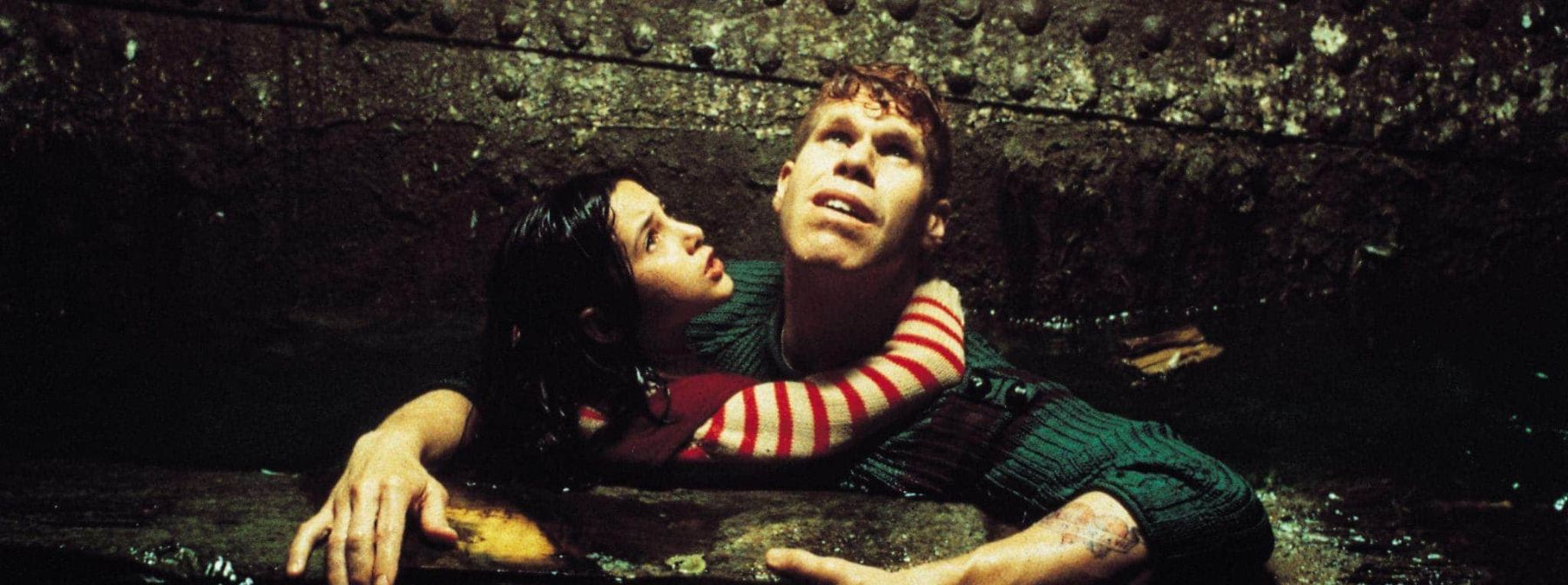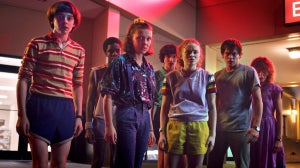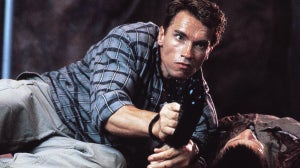
The influence of the 1995 effort from co-directors Jean-Pierre Jeunet and Marc Caro can still be keenly felt to this day, whether it’s in the gorgeous practical sets of Guillermo del Toro’s extravagant productions, or in the vividly realised dystopias of the BioShock video game series.
The movie tells of a rapidly ageing being named Krank (Daniel Emilfork), who was created by a mad scientist and unable to dream – so he kidnaps various children from the nearby town to extract their dreams from them. A madcap series of events leads carnival manager One (Ron Perlman) to infiltrate Krank’s headquarters to avenge his kidnapped younger sibling, but things only spiral further out of control from there.
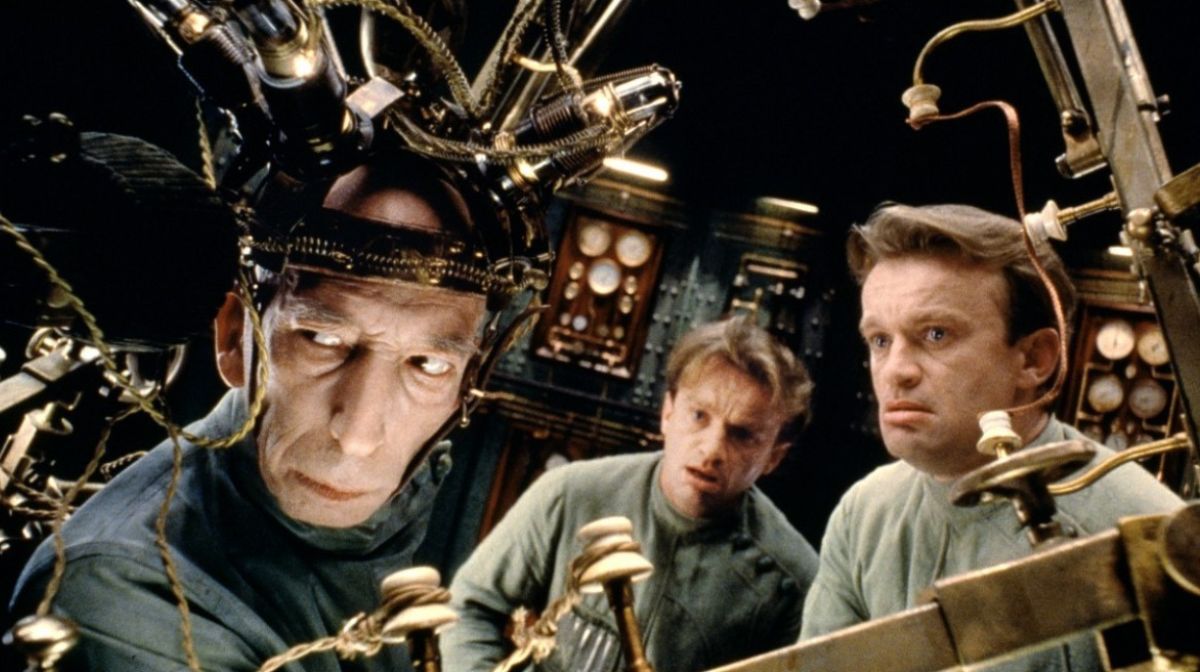
Speaking to Zavvi as the film is newly released on 4K, the filmmaker duo reflected on the decade-plus process of trying to get the movie made, and how it completely transformed from the original draft they wrote back in the 1980s.
“The original pitch was like Moby Dick”, Caro reflected, “but with a madman who wanted to hunt and kill the big fish. The concept of the harbour and all the kids were there in the first draft, but it was pretty crazy – and too expensive to make.”
“After (1991 movie) Delicatessen we revisited it, and that’s when we came up with the idea of killing children’s dreams”, Jeunet added. “We wanted to work with Daniel Emilfork, and having the idea of him as this Nosferatu, a vampire of dreams, just changed everything”.
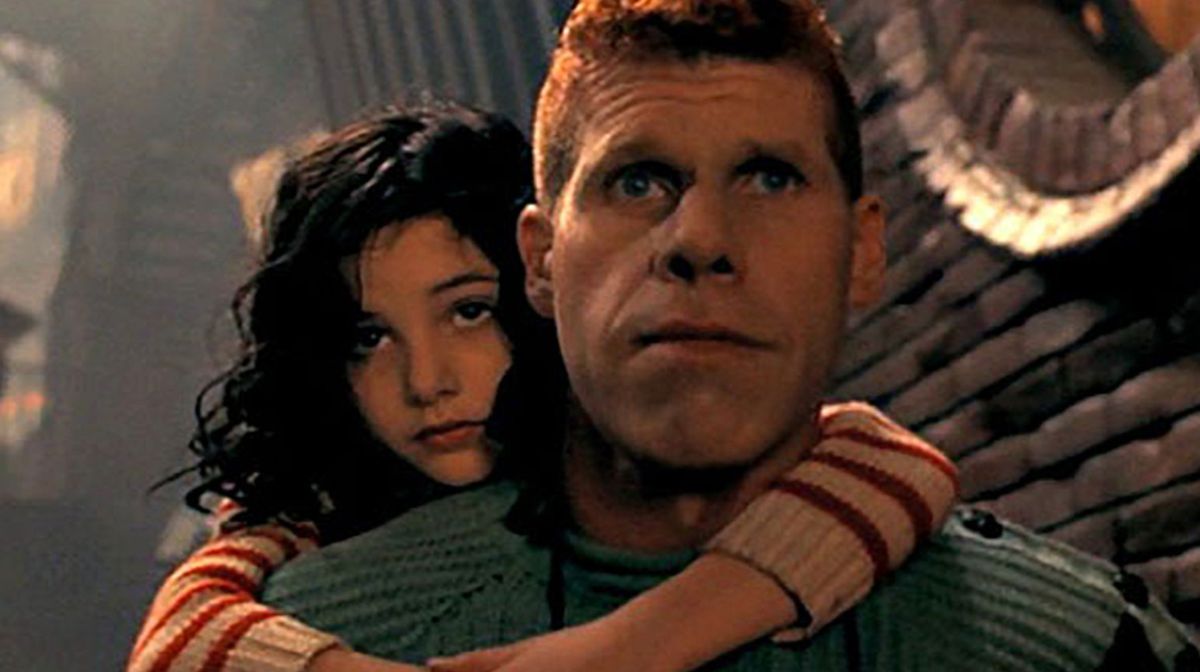
The pair’s other main casting coup was getting Ron Perlman to play One, a decision inspired by Caro seeing the actor in Guillermo del Toro’s directorial debut Cronos a few years prior. This almost didn’t happen, when the directors were informed the actor had turned them down.
Jeunet continued: “We sent the script to his agent, who told us he wasn’t interested, but we knew we needed to try again, and reached out to him via (director) Jean-Jacques Annaud, who he’d worked with before. We managed to get in touch with him directly and found out he’d never even heard of the project until then, and he fired his agent because of it!”
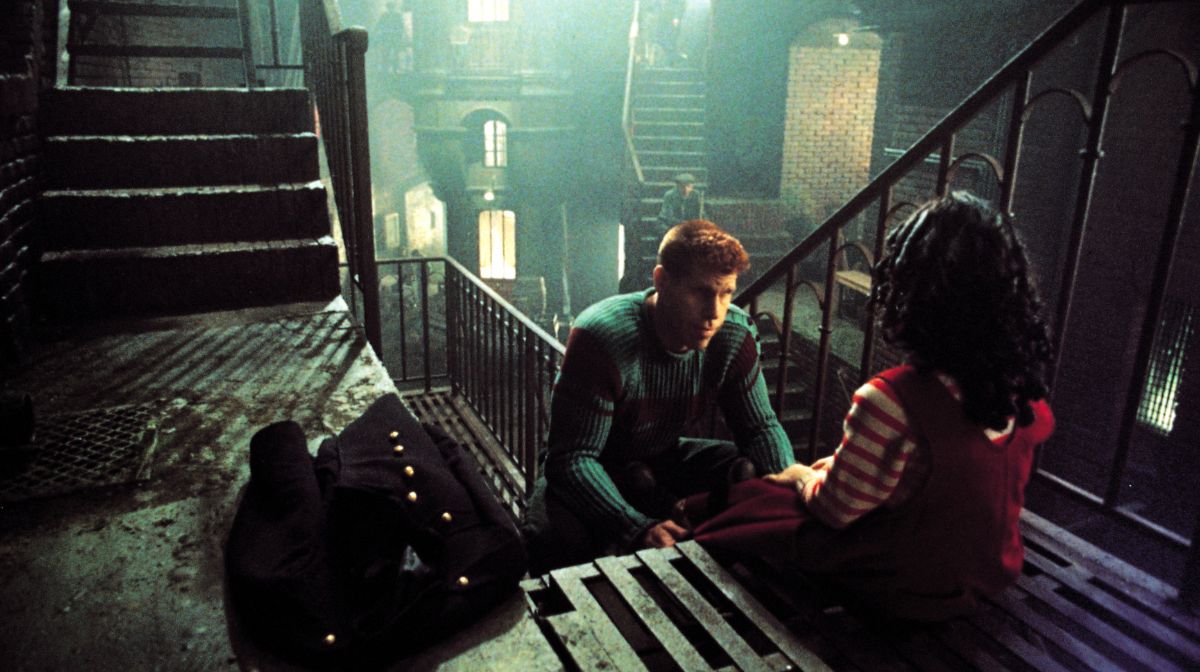
Perlman fits perfectly into this nightmarish landscape, but initially, Jeunet needed to be convinced he was the right man for the job.
“We initially met him in New York, and at the beginning, I wasn’t so sure. He was very elegant, it wasn’t so easy to imagine him as the character of One, but my producer convinced me.
“Him speaking French wasn’t a problem, as he only had a few lines, but the pronunciation was still an issue on one line even as he was working with a coach; this might be because he was such a nice guy, every time he came to my house in Normandy to rehearse, we’d just end up playing pool all night, or doing anything else!”
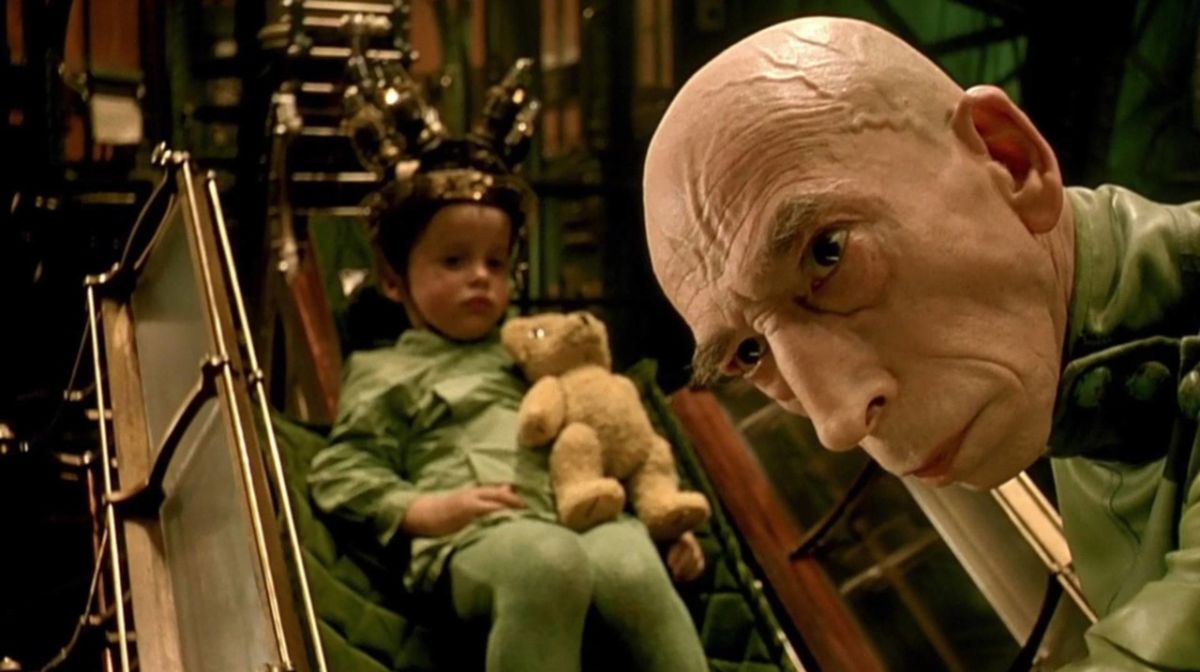
The film may have lost money on its initial release, but it received warm reviews from the moment of its premiere as the opening film at the 1995 Cannes Film Festival. Jeunet’s own relationship with it is far more conflicted, however.
He added: “My relationship to it depends on my mood – sometimes it’s beautiful, sometimes I can only notice things that are wrong with it and it leaves me depressed.
“I remember when I was in Los Angeles preparing to direct Alien: Resurrection, I was staying at the Chateau Marmont, and it was playing in a theater across the street; that was a time when all I could notice were the defects. And then there are times watching it with an audience where the reaction is great and it leaves you happy – the film never changes, my reaction does!”
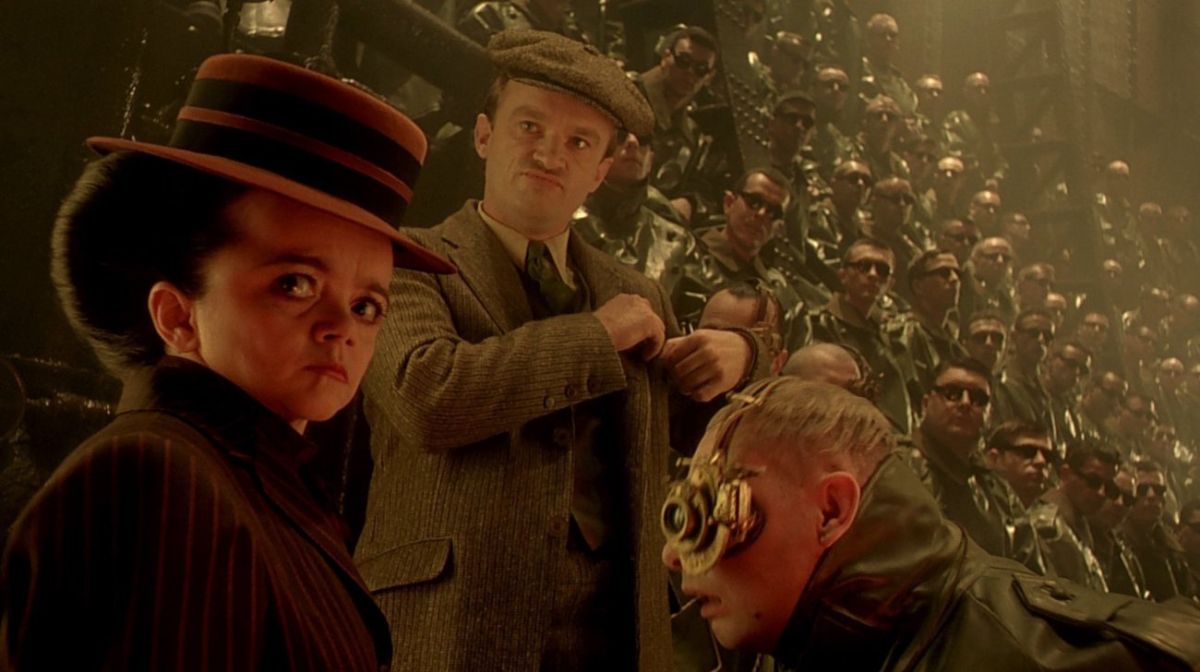
The pair helped oversee the 4K transfer of the film, which Caro is in awe of. Even as the original release gained acclaim for its visuals, he gushes that they’ve “never had such beautiful colours or definition before.”
For Jeunet, revisiting the film has shone a light on various visual details even he didn’t notice when shooting or editing the very first time, right from the very opening of the film. These artistic flourishes were discovered in the gorgeous set design, with every last practical location surrounding the walled city featuring more depth than the director previously realised (he joked that seeing the Blu-ray left him wanting to fix his TV screen, as it was “too colourful!”).
It’s part of the reason Caro is so happy that they made this film during the period that they did, lamenting that “the challenge was to create this world in a physical space – if we made this now, it would be entirely CG. We’re lucky to have been able to avoid that, as this type of filmmaking is all traditional now, you know?”
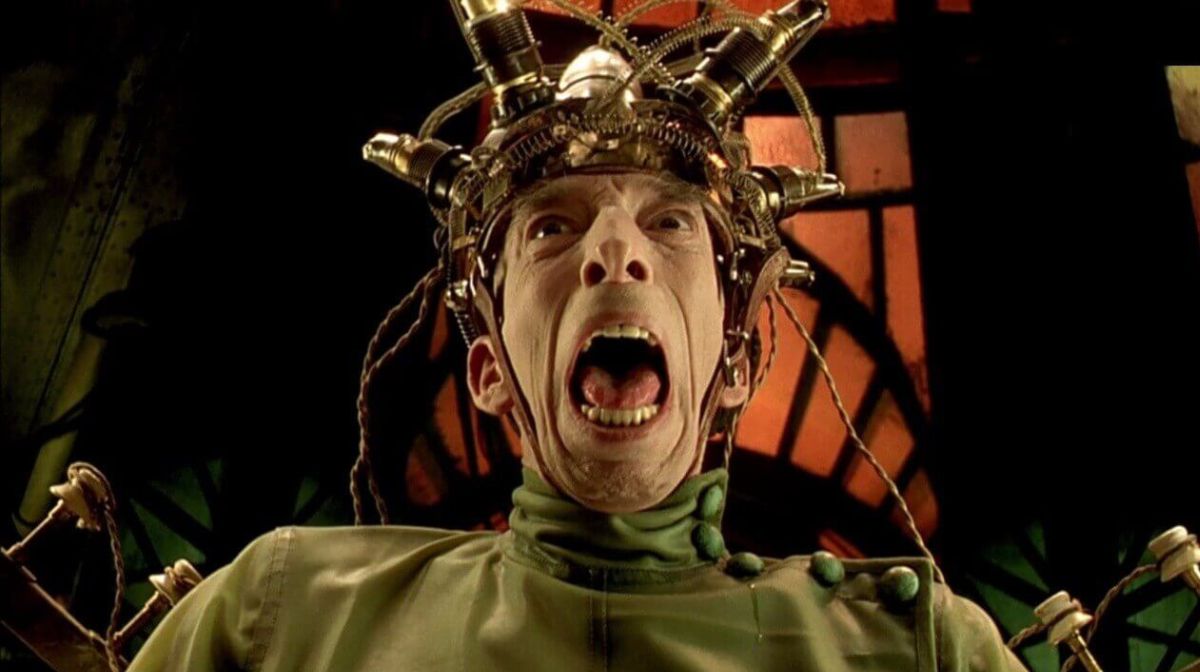
The City of Lost Children was the last movie the pair co-directed together, although they have collaborated since; Caro helped design costumes and sets on Alien: Resurrection, and more recently, they worked on a short film, Loop. But they haven’t jointly helmed a feature-length effort in nearly 30 years, with Jeunet now more established as a solo filmmaker (in no small part due to the success of his 2001 romantic blockbuster Amélie).
Jeunet has an explanation for why their directorial partnership didn’t last; “if you look at the history of cinema, the directors who work well together are brothers!
“Working with Marc was a privilege, but two films was enough for the both of us. After this, I had always wanted to make a film like Amélie, which isn’t Mark’s cup of tea, he’s more attuned to science-fiction – and after working alongside someone else, at a certain point, you need to make something more personal for yourself.
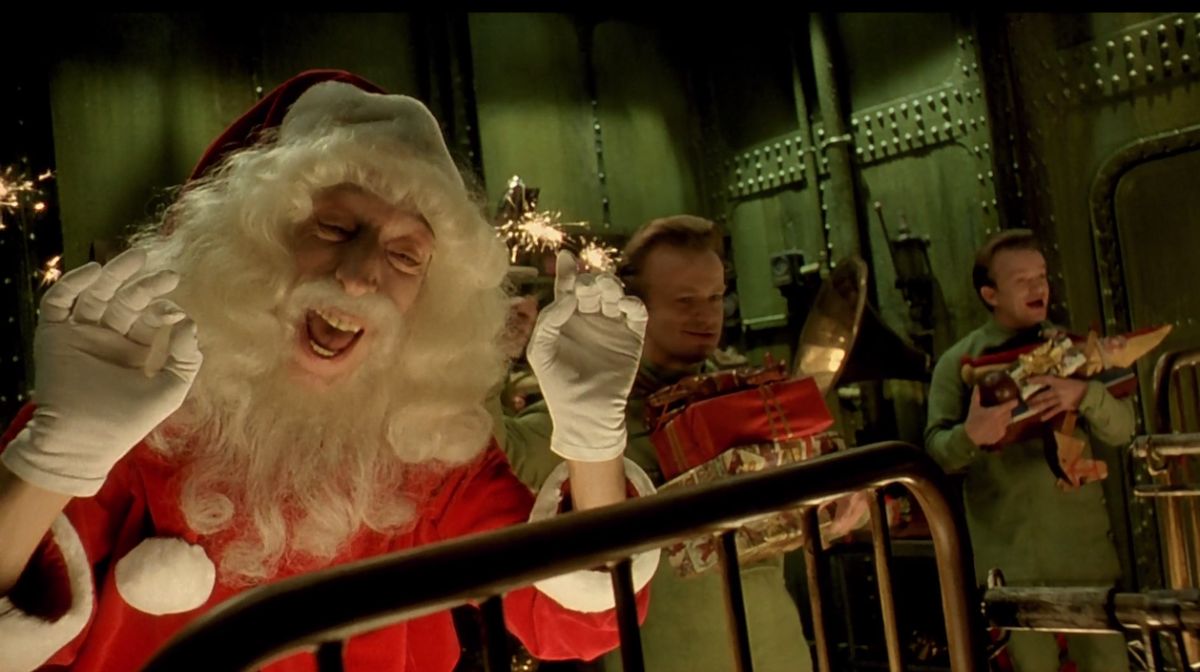
“We still work together where we can; a few years ago, we head our exhibition in Paris, which was a big success for an exhibition about two directors. We can have have this kind of collaboration – but still working together as filmmakers? I don’t think that’s possible.”
The pair may have explored their own artistic identities since The City Of Lost Children, but looking back at their last feature-length collaboration, it’s clear that their work together remains very special indeed.
For all things pop culture, follow us on Facebook, Instagram, Twitter and TikTok.

